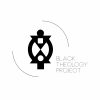By Alton Pollard,
For four hundred years and more it has been going on in this land colloquially known as America. Black life disrespected, expendable and cheap. Beaten, raped, stabbed, shot, dismembered, lynched, incarcerated, burned and dragged to death. The violence of it all. The brutality of it all. The protection of it all. The justification of it all. The sheer calculus of it all. The colonization of Black lives continues uninterrupted and with little to no consequence. There is no safe place. And we are angry.
Breonna Taylor was in the sanctuary of her own home in the early hours of night when Louisville law enforcement made their deadly raid. Another Black woman was killed, never to rise again in this mortal frame. Kenneth Walker, the love of her life, was initially arrested and jailed for defending their home in the ill-fated raid before later being released. Family and friends, loved ones and allies want to know what possible pretext could exist for the continued mistreatment and killing of Black lives. There is none. Multiracial community, in intersectional witness, filled downtown streets in protest. I live in Louisville, and I am angry.
Ahmaud Arbery was jogging while Black through a neighborhood in Brunswick, Georgia, when a self-proclaimed citizen’s arrest turned deadly. He didn’t live far from where he was followed, filmed, accosted and shot twice in the chest. It didn’t matter. Another mourning mother’s son, another grieving father’s child, another precious Black life gone, in a world turned callous and cold to his dreams and possibilities. After video of the shootings emerged, arrests were made. My beloved comes from that southeast region of coastal Georgia, less than an hour away. Multiracial coalitions against murder have risen in powerful protest, and I am angry.
Across the nation, the people are taking to the streets. I am a Black man from Minnesota, and I am angry.
George Floyd is the Minneapolis man who died in police custody mere days ago. The video is harrowing. So many of them are. Still, justice is far from guaranteed. What this one shows is a police officer kneeling, pressing down on the nape of Floyd’s neck, the back of his head, an authority figure, oblivious to bystanders’ entreaties to stop. For several agonizing minutes, handcuffed on his stomach, nose bleeding, body ground into the pavement, Floyd gasped for air, pleaded for breath, and called out to his deceased mother with his dying words. Across the nation, the people are taking to the streets. I am a Black man from Minnesota, and I am angry.
The world has not changed much since the pandemic. In some ways, perhaps, it has. Tragically, the coronavirus has taken the lives of hundreds of thousands of people the world over. More lives will doubtless be lost to us. The world of pandemic has infected, impacted and decimated countless millions more. Engrained social inequities in our health care systems have especially been exposed. We are sore distressed. We grieve for the children of God everywhere, lost to our world too soon.
Many people yearn for a “return to normal.” Others speak of a ‘new normal.” I am not interested in either scenario. Racism, that most common of American diseases, also continues normative and dominant, a viral strain long ravaging our society. It is scarcely mentioned in polite company, except when the people raise their voices in protest. The convergence of pandemic and epidemic, Black life and suffering, from the denial and absence of health care to heightened rates of death and harassment on public streets, is not something many white Americans want to hear or accept. It is profoundly true.
Resistant to the winds of change, American racism continues to rear its ugly head. Differently contextualized in white supremacist and respectable white culture makes it no less destructive or dehumanizing. Debilitating to our national health and well-being, it powerfully resurfaces time and time again to expose our country’s deep-seated and self-inflicted wounds. In our myriad transgressions, obsession with hierarchy, and arrogance of empire, we have made Black communities especially susceptible to disease and death. We have exported our brands of racial death and social contradiction to the world.
Amid a pandemic, now as before, I see Black death everywhere. I am angry and have every right to be.
The fear, hatred, bigotry, illogic, and indifference associated with racism is chilling and manifest. It finds its way into forms of personal decision, policy-making, and insouciant policing. It radically diminishes the life chances of many. Racism has long been America’s original sin. Amid a pandemic, now as before, I see Black death everywhere. I am angry and have every right to be.
The magnificent Audre Lorde said it best: “We use whatever strengths we have fought for, including anger, to help define and fashion a world where all our sisters can grow, where our children can love, and where the power of touching and meeting another women’s difference and wonder will transcend the need for destruction.” Fury and anger between equals and peers – when there is a knee on our necks, an invasion of our homes, in the very taking of our lives – is an act of righteous resistance, an insurrection against power and privilege, and an invitation for all into solidarity. May it be so.
 Rev. Dr. Alton B. Pollard III is Louisville Presbyterian Theological Seminary’s tenth president. A scholar, author, consultant and speaker on the subject of African American and U.S. religion and culture, Pollard was previously dean of the School of Divinity and professor of Religion and Culture at Howard University in Washington, D.C.
Rev. Dr. Alton B. Pollard III is Louisville Presbyterian Theological Seminary’s tenth president. A scholar, author, consultant and speaker on the subject of African American and U.S. religion and culture, Pollard was previously dean of the School of Divinity and professor of Religion and Culture at Howard University in Washington, D.C.


Facebook Comments